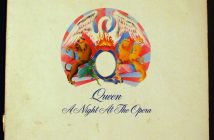The news reported by Variety that repulsively-named stateside cable network Starz is in the process of adapting Peep Show for its audiences is nothing but a blow to connoisseurs of creativity and self-deprecation.
The original Channel 4 show, created by Jesse Armstrong, Sam Bain, and Andrew O’Connor, completed its ninth and final series last winter, leaving Mark Corrigan and Jeremy Usborne (David Mitchell and Robert Webb) in the perfect finale of wallowing in their own awfulness in front of a television. Now, with Wilfred graduate Eli Jorne at the helm, its identity inevitably faces a tarnishing from a highly commercialised entertainment industry unwilling to take risks with original concepts.
Sure, sequels and reboots are safe. It’s far easier to flog rubbish to advertisers, and audiences alike if they’re vaguely familiar with something that came before than if it stems from untested original creations. It’s even better, perhaps, if the new show has a legacy from across the Atlantic, where everything is quaint and laced with tea as we dwell in a fantasy world of crooked teeth, dry wit, and adorable accents. If it worked for The Office, after all, why not everything else?
In this situation, because Peep Show isn’t like everything else. In the El Dude brothers’ 12 year stint as a sporadic fixture on our screens, its radical narrative approaches of point-of-view cameras and frequent internal monologues became natural, ceasing to stand out to anybody familiar with even one episode.
Where it triumphed was through its depiction of omnishambolic attempts at human interaction coated with a wry demeanour. Showcasing the greatest of sardonic British attitudes to life (and whatever Super Hans was), the chemistry between long-time collaborators Mitchell and Webb (and writers Armstrong and Bain, who are to act as consulting producers for Starz) meticulously crafted 54 bursts of awkward side-splitting comfort.
Of course, it remains entirely possible (and, for the rational, entirely hopeful) that the product of Starz’s labours will either resemble its source material so little that any link is quickly extinguished on its initial airing – “Starz’s Peep Show will be an entirely different series,” says The Verge’s Lizzie Plaugic, suggesting that it could easily become a buddy comedy that merely apes the camera gimmickry of the Channel 4 version – or that it falls utterly by the wayside in pilot season as mainstream American audiences struggle to appreciate its bumbling foundations. The latter would indeed have a precedent, as a 2006 NBC interpretation of Graham Linehan’s similar Channel 4 cult hit The IT Crowd was rapidly canned, despite the retained presence of Richard Ayoade as the loveable Maurice Moss, after an ugly pilot that served solely as a deflating table read of the original show’s script.
From sets to intonations, almost every second of the pilot is directly lifted from the original, yet the non-Ayoade cast flip fell incredibly flat. Joel McHale’s inherently arrogant and smarmy delivery as Roy later found a suitable home in Community’s Jeff Winger, yet was highly obnoxious in Reynholm Industries. A regretful Ayoade retreated home, tracing a path later used by the likes of Cheryl and, surely soon, James Corden. Linehan, claiming no involvement, has since been back for another bite at the apple.
For a delightful introduction to the routine Hollywood bastardisation of scripted television concepts, look no further than BBC/Showtime collaboration Episodes, which stars Stephen Mangan and Tamsin Greig as acclaimed creators of sitcom Lyman’s Boys getting lured to Los Angeles by money and, well, money to remake it for Americans.
The result – aside from strained personal relationships and four delightful series to date – is Pucks, a panned hockey-based circus with Matt LeBlanc in the lead role. Though its depiction of LeBlanc’s exaggerated self has made any incarnation of him, especially in Top Gear, almost impossible to take seriously, Episodes’ existence is a rare shining light in network comedy. An original premise with sharp delivery given time to flourish and not passed through writers’ room mangles to be squashed lifelessly through soulless 24-episode seasons, its upcoming final run will be one to cherish amidst the unending Peep Show-like regurgitations.
Watch a classic scene from the ‘real’ Peep Show below:




